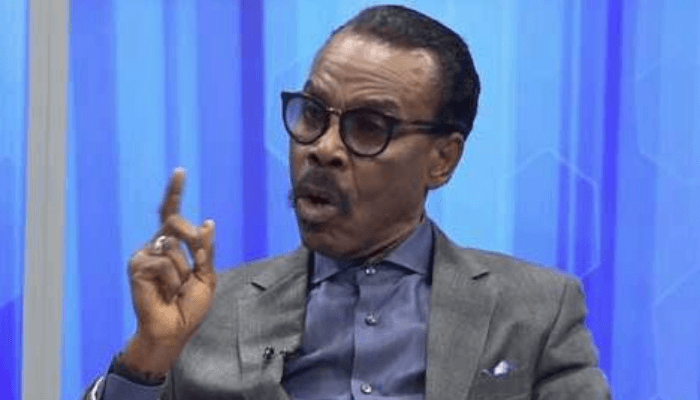Bismarck Rewane, chief executive officer of Financial Derivatives Company (FDC), on Thursday highlighted 12 key trends expected to shape the Nigerian economy in 2026.
He made the outline while delivering the keynote address on Nigeria’s Economic Outlook for 2026 at the 2025 Parthian economic discourse, themed ‘Reforms to Results: Powering Economic Growth for Shared Prosperity’, organised by Parthian Group in Lagos.
The trends include the impact of elections with significant government spending, potential inflationary pressures, debt service challenges, a projected 4 percent decline in savings of N500 billion, developments in market capitalization, the listing of Dangote and NNPC with a combined market value of N263 trillion, a more realistic 2026 budget down by 10 percent, and oil prices expected to remain below $60 per barrel.
Read also: Experts examine practical models to leverage Nigeria’s fast-growing creative economy
Other factors include insecurity, the implementation of tax reform bills, a 15 percent import duty on fuel imports, accelerated adoption of artificial intelligence across sectors, expansion of digital and social commerce, moderate economic growth around 3.2 to 3.4 percent, and continued inflationary pressures.
Rewane said Nigeria’s GDP growth is projected to maintain positive momentum in 2026 at 4.1 percent per annum. He noted that the economy will experience moderate growth driven by expanding business activity, productivity gains, and supportive investment sentiment. Expansion of private sector investment through improved credit access, infrastructure upgrades, and the execution of industrial policies is expected to contribute significantly.
On the foreign exchange front, he projected that the naira would appreciate, hovering around N1,450 to N1,500 per dollar, supported by stronger foreign reserves expected to boost FX supply and reduce pressure on the currency. He added that the inflation–interest rate differential, driven by elevated policy rates, will continue to narrow as inflation gradually declines. Food and core inflation are projected at 20 percent in 2026, supported by sustained disinflationary monetary policies and anticipated cuts in the benchmark Monetary Policy Rate (MPR), which would stimulate credit expansion and production.
Regarding the stability of Nigerian banks, Rewane noted that modest economic growth of 3–4 percent would support credit demand and reduce default risks, thereby enhancing asset quality. If headline inflation stabilizes around or below the Central Bank of Nigeria (CBN) target of 12–14 percent, lending conditions would improve, easing pressure on banks’ real returns.
A relatively stable naira, especially in official and BDC markets, would further reduce FX risk exposure for banks with foreign-denominated liabilities. Policies promoting digital banking, reducing non-performing loans, and adopting international reporting standards (IFRS 9) would enhance transparency and risk management. Exposure across diverse sectors such as agriculture, manufacturing, and fintech would lower the risk of sector-specific shocks, while banks that complete capital raises are better positioned for growth and risk absorption.
Read also: FG pledges investment in creative economy, tourism to drive Africa’s development
Speakers during the panel session emphasised the importance of trust and proper sequencing to ensure that the benefits of reforms reach all stakeholders. The panel included Taiwo Oyedele, chairman of the Presidential Committee on Fiscal Policy and Tax Reforms; Ireti Samuel-Ogbu, chairperson of Africa Finance Corporation; Olufemi Odukoya, managing director of Parthian Pensions Limited; and Omagu Isa Emmanuel, chief Strategy & Development Officer of Bank of Industry Limited.
Oyedele explained the rationale behind the new tax policy, highlighting the need to address fiscal drag and high inflation in Nigeria. He noted that the policy aims to make the tax system more progressive by expanding the tax bracket and reducing the corporate tax rate to 25 percent. Panelists said the reforms are expected to benefit 19 percent of the Nigerian population by reducing their tax burden, encourage the formalization of small businesses, and improve the overall economic environment. The session underscored the importance of understanding these reforms to take advantage of emerging economic opportunities.

